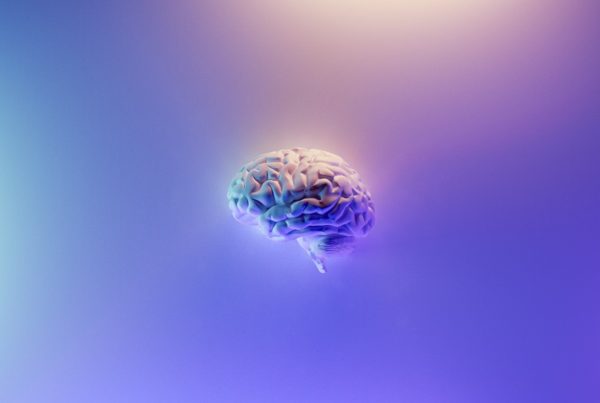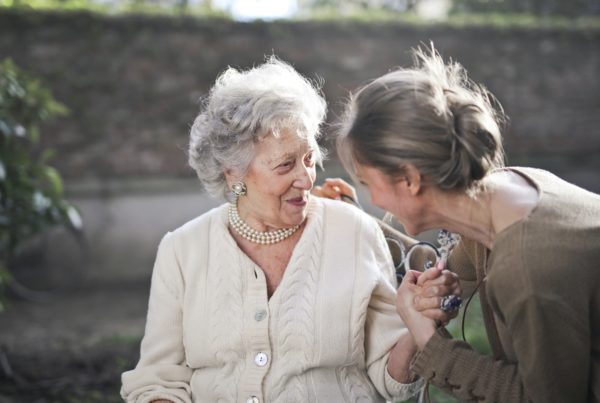Help and tips for dealing with depression naturally
Depression affects many people, and around 22% of men and 28% of women aged 65 years and over. It’s important to have some knowledge on how to cope with dealing with depression.
Depression varies from mild or moderate, to severe and clinical. It can affect sleeping and eating habits, as well as motivation and ability to complete daily tasks, or enjoying things that used to be enjoyed.
It is usually triggered by something. For older people, it could stem from feelings of loneliness, lack of life purpose or taking part in meaningful activities. It could be a result of reduced levels of independence, a combination of these things, or something else. Getting to the root cause of the depression can help. It may not be possible however, to get the root cause as often it’s a combination of things that may have developed over a period of time.
There is no way to fix it straight away, depression is a chemical imbalance in the brain, combined with intense feelings that need to be mended over time, or sometimes with the help of medication and therapy.
There are some natural ways for dealing with depression though, and these can help you or your older relative to get on the right track to recovery.
1. Take small steps
Take each day slowly, it’s ok to not feel ok. The feelings will not last forever but while they are there acknowledge them for what they are, if there is someone to talk to about the feelings with, this will help. By taking a step by step approach, you are allowing yourself the time to recover and the time to build yourself back up again.
2. Set achievable goals
Setting small and achievable goals can help with getting through each day. Write a small list of daily goals and tick them once they are completed.
This will also provide a sense of accomplishment and something to check over time as recovery progresses. A small goal might be any of the following:
- Go for a 10 minute walk outdoors each day
- Talk to a friend or family member weekly
- Have a shower each day
- Get dressed
- Listen to music
- Read a book
These might seem like normal things that you simply get on with, however depression can stop you from being able to do them.
It’s important to begin with things that are achievable and slowly reach bigger goals.
3. Mindfulness
Mindfulness is a form of meditation that brings you back to the present moment. Depression and anxiety can put your mind elsewhere, such as dwelling on the past or worrying about the future.
Staying in the head too much can disconnect us from the present moment, and from our body.
Mindfulness means that you bring yourself back into this moment by becoming aware of your surroundings and your body, using your senses like smelling and hearing, breathing deeply, then focussing on each part of your body, from your toes to your head. This can reconnect you and over time will help to reduce uneasy feelings.
Activities like using adult colouring in books can also help with mindfulness practice as well as being a therapeutical activity.
4. Exercise
Exercise helps your brain create serotonin which is the chemical that keeps you happy. Physically active people usually recover from mild depression more quickly, and physical activity is strongly correlated with good mental health as people age.
When you are feeling in the depths of depression, exercise is likely to be the last thing you want to do. Starting with a gentle walk can help, or some yoga. Joining a yoga class or a walking group may also help, daunting as it may seem to socialise.
A walk in nature regularly can help reconnect your sense of connection to earth, uplifting your feelings over time.
5. Socialising and talking
The more we feel excluded, or exclude ourselves and withdraw socially, the worse our depression can become. With older people who are lonely, this is a real concern and leads to depression. Anxiety and specifically social anxiety makes socialising more difficult.
Remember to start small with achievable goals. Going for a cup of coffee in public with a friend or family member can help keep a feeling of connection to the outside world.
Talk about how you feel to people who are close with you if you can. They may not understand but hopefully they will listen and it can help you to process some of how you feel.
You may also find social media a good source of support.
6. Specialist support organisations
There are many organisations offering support, specifically for mental health. They offer helplines, online forms, and information to help you navigate your way through your depression.
Talking to those who understand and have experienced, or are experiencing what you are going through can really help you. Feeling that you are not alone can help you towards your first steps of recovery.
7. Healthy and balanced diet
Eating habits are linked to how we feel, what we consume can change the chemical balances in our bodies such as hormones, and start affecting energy levels. You are what you eat as they say.
Some people turn to junk food and sugars when depressed and gain weight which can add to feelings of helplessness. Other people stop eating at all, which is just as harmful.
It’s important to maintain a healthy diet, and this can be difficult if you use food for comfort. Limit sugary and fast peak energy foods, replacing them for longer lasting energy such as nuts, fruit and oats.
If you stop eating when depressed, try eating regular small amounts. Nuts, bananas and seedy bread for toast can be nice easy choices and light on the stomach.
8. Vitamins
Vitamin D and Vitamin B complex can both help with depression. Taking supplements daily will help over a period of time.
9. Hydration
It’s always really important to stay hydrated, however with depression, it’s even more vital. Our brains need to function properly to keep us alive let alone happy.
Water is linked fundamentally to our need for survival and a lack of water is a threat to your survival, so dehydration can cause your body to become anxious. So be sure to drink plenty of fluids.
10. Support network
You might want to offer a daily phone call to your older relative and if possible pop in and visit more often.
If you are experiencing depression yourself, let friends or family know and try to arrange a regular call among them to help you feel less alone in your feelings.
Getting help from a counsellor or therapist can help too, you may be able to learn some cognitive behaviour skills that will give you coping skills for future periods of depression.
Further support
Organisations that can be of further help to you are:




